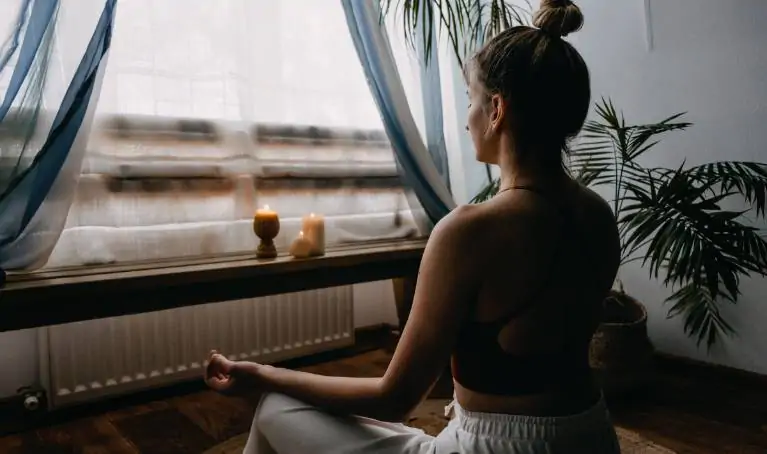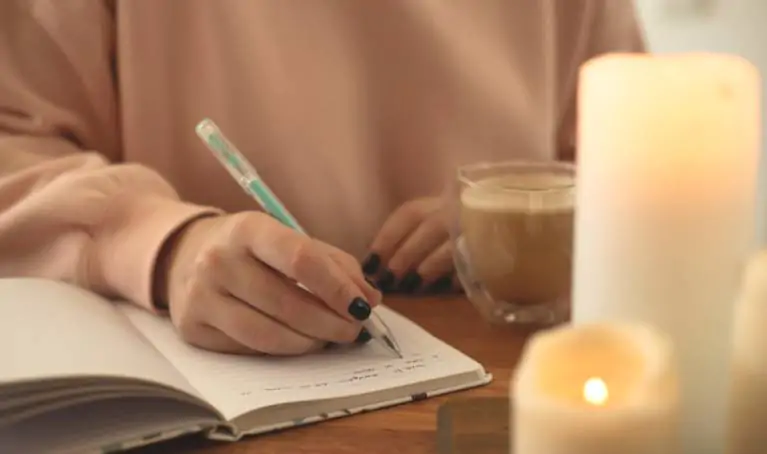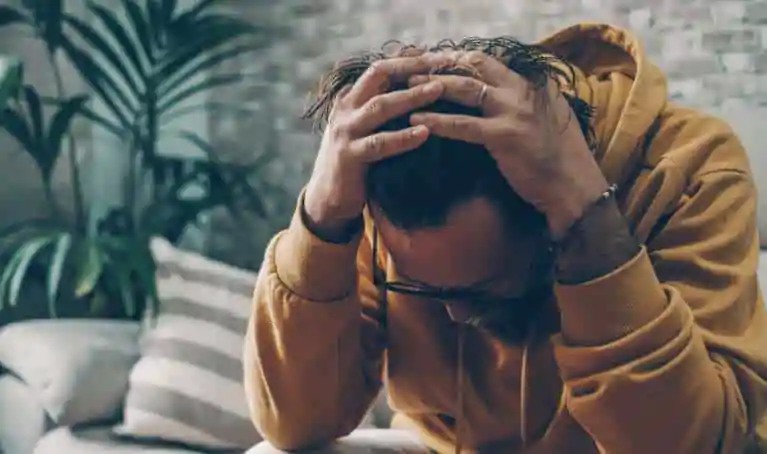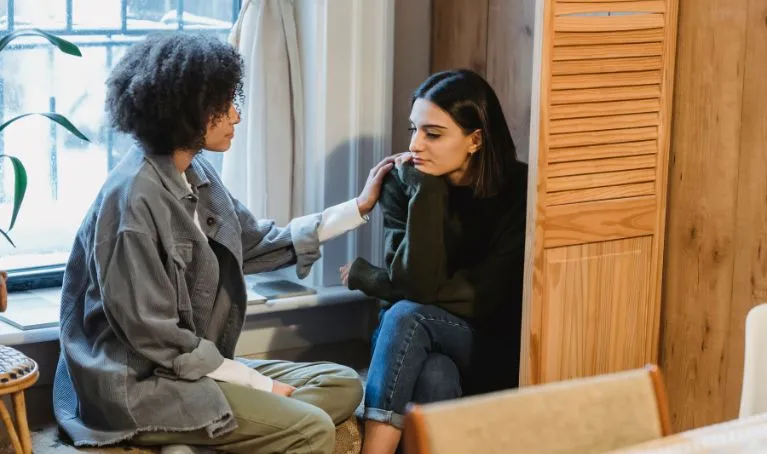Being suffering from anxiety can be as hurting as any other physical pain. A person can be triggered even by the smallest of the details that bother him and the anxiety kicks in. The worry about something that is going to happen or about the future can cause unrest and distress to a person. This will make him/her anxious. The symptoms can be managed by effective management in several ways including medications, therapy, meditation, yoga, and relaxation techniques.
What Is Anxiety?
Anxiety is a mental condition or disorder that makes you feel worried or terrified by the fear of happening something. It is the fear of the future. This condition seems to be different from normal fears or nervousness. Sometimes it helps you prepare for difficult situations beforehand. But as it worsens, it can make it difficult for a person to function normally.
It hinders the normal functioning of the human body. It interferes with our ability to focus, concentrate, study, even breathe and eat food. These points imply that anxiety disorder can affect you physically and mentally. It affects men and women equally around the world. Nowadays it is considered taboo to discuss anxiety publicly. People feel insecure about themselves if they are seen crying or suffering from anxiety.
How Does Brain Normally Work?
The brain functions such that whenever there is an alarming or emergency situation, it prepares the body to face it. The brain releases stress hormones known as epinephrine and norepinephrine to prepare the body for fight-or-flight situations. It adjusts the main mechanisms of the body accordingly.
For example, it speeds up breathing and heart rate dilates pupils, and stops digestion to store energy. All this is a normal response, but the problem arises when fear and stress overcome the person’s ability to function. That specific condition is referred to as anxiety disorder.
Causes of Anxiety
Common causes of anxiety include.
- Childhood or past trauma related to a specific event
- Negative behavior of people toward a person
- Other mental disorders
- Genetic causes
- Personality disorders
Types of Anxiety Disorders
There are quite a few types of anxiety disorders that are caused by different types of fears and phobias. They are listed under.
- Panic disorder
- Fear of being in closed places
- Fear of facing the crowd
- Social anxiety disorder
- Fear of failing in a relationship
- Panic disorder
All of them have similar sort symptoms and patients are affected to the extent that they feel they are having a heart attack.
Symptoms of Anxiety Disorder
- Breathlessness
- Chest pain or congestion
- Trembling
- Numbness in hand and feet
- Mental confusion
- Inability to concentrate
- Sweating and dizziness
- Increased heart rate and breathing rate
- Troubled gastrointestinal tract
- Frequent urge to urinate
- Feeling that everything is going to end
- Fatigue and muscle tension
All these are common symptoms faced by a person experiencing anxiety disorder. These symptoms need to be cured at any cost and at the earliest to avoid complications.
There are several ways to reduce anxiety and there are certain medicines that calm down an anxious person. They soothe your central nervous system. But you should never take the medicines or your own without the prescription of your doctor and without consulting a psychiatrist.
Ways to Reduce Anxiety
Your doctor or psychiatrist must be aware of your mental health condition and the symptoms and severity of the disorder. Considering the situation, they prescribe suitable medicine that helps you overcome anxiety.
You must take in those foods that help your brain and central nervous system relax. These include omega-3-rich foods, seeds, nuts, magnesium-rich foods, and anti-inflammatory foods. There are a number of teas like green tea, estafiate tea that can do wonders in reducing anxiety.
But there are a number of ways in which we can control our fear or anxiety and divert our mind to something different and overcome bad mental health days. The ways to reduce anxiety are discussed below.
1. Meditation

Meditation is actually a slow and gradual practice that over the course of time stabilizes your mind and put it to a calm and resting state by several repeated sentences and focusing on a single thought. Meditation is encountering your worrying thoughts by diverting your mind to positive outcomes and thinking about a different perspective of that event.
This is done by mindfulness, focusing on a particular activity, speaking to yourself, reassuring yourself about the outcomes in a positive way, and overcoming the fear of something that is never going to happen.
- Meditation practices can ultimately help us change the way we think about a particular situation.
- We learn to encounter the event and face the consequences.
- We make us understand that it is the actual situation that matters and not our mere thoughts. We learn to overcome the negative thoughts and worst consequences by thinking and focusing on positive outcomes.
- We plan workouts and yoga sessions to bring our minds to rest.
- Nighttime anxiety can also be managed by framing your meditation workout at night.
2. Deep Breathing

Deep breathing practices really help overcome anxiety through different mechanisms. When you follow a specific breathing pattern and focus on that pattern with all your mind, your brain gets relaxed.
You feel your breath go in and out and follow this pattern, this releases stress and diverts your mind. You are now focusing on the breathing pattern rather than those anxious thoughts; this helps you calm down.
3. Journaling

Journaling really helps with anxiety disorders. Writing things down that trigger or bother you will help overcome them. You embrace reality and those thoughts and their expected outcomes by writing them down. It helps release stress and anxiety. You feel less anxious after writing your thoughts down. Reassurance helps a lot in this situation. Reassure yourself that you are strong enough to face this.
4. Traveling

Traveling to your favorite places helps release anxiety to a great extent. The phenomenon is different for different people. People have affiliations with different places, roads, and destinations and even traveling itself can release stress and anxiety. People find home in the journey, and this soothes their anxious minds and body. Writing the traveling experience and their thoughts is another way to encounter anxiety.
5. Reading Books

Books are man’s best friend. This proves to be true in several research where people who read books, journals, and stories to overcome anxiety are more relaxed as compared to people who do not read. Reading books and creating scenarios in your mind helps your mind focus on that situation instead of negative thoughts.
A 2009 study conducted at the University of Sussex suggests that reading may effectively reduce stress levels by up to 68%.
6. Exercise and Workout

Exercise and workout really do wonders. People who are suffering from anxiety need to exercise and work out daily. Aim at a particular goal and start exercising. Test your strength and challenge your body to achieve the goal. This will evoke a sense of determination and motivation in your mind.
Doing this will help you overcome stress and anxiety. You will be more inclined towards a positive and healthy lifestyle. Listen to your favorite music or anything that motivates you while working out. This helps release hormones that make you feel a sense of achievement.
7. Behavior Therapy

Cognitive behavior therapy is another approved method to reduce anxiety. The therapy aims to correct the way you think about a situation. It wipes away the negative thoughts and emotions linked to a particular event. It works in a way that you identify your negative thoughts, challenge them and replace these thoughts with positive and realistic ones.
It aims to
- Identifying your fears
- Confronting them
- Overcoming them
What if We Let Our Anxiety Overcome Us?
- Let’s suppose we let our anxiety kick in, and disturb us, what happens to our brain is actually more alarming. The almond-shaped structures in our brain called the “amygdala” become under constant stress. This over the course of time leads to the deterioration of their shape leading to a situation called neuroplasticity.
- Anxiety affects our immune system severely. If we do not treat anxiety, it will make us prone to disease attacks, and our immune system gets weakened.
- We are at greater risk of heart attack. The frequent rise in heart rate and constriction in blood vessels will block our vessels and blood supply to the heart. This increases the chances of a heart attack.
- Gut health gets destroyed by repeated anxiety attacks.
- Blood glucose levels, blood pressure, and cholesterol levels rise to an alarming point making us more vulnerable to diabetes and metabolic syndrome.
So, it is really important to overcome stress, anxiety, and depression to lead a healthy life. Otherwise, you might get destroyed by your own thoughts and fears.







